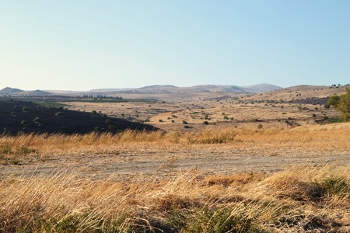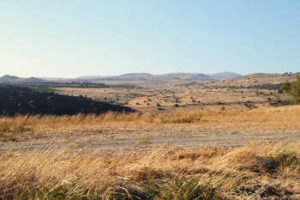Matthew 5:3 part 2 of 3 Rabbi Michael Weiner

 The “big sermon” (the Sermon on the Mount) starts with 7 “blessed are …” statements. There are really 8 of them, but the 8th one is different. The first 7 are attitudes (‘be’ attitudes, as opposed to ‘don’t be’ attitudes). These attitudes come from within the believer. The 8th “blessed are …” statement is not an attitude at all, but something that happens to you from external circumstances. Matthew 5:10 “Blessed are those who have been persecuted for the sake of righteousness, for theirs is the kingdom of heaven. We’ll get to this one in time, but first, let’s deal with the 7 attitudes.
The “big sermon” (the Sermon on the Mount) starts with 7 “blessed are …” statements. There are really 8 of them, but the 8th one is different. The first 7 are attitudes (‘be’ attitudes, as opposed to ‘don’t be’ attitudes). These attitudes come from within the believer. The 8th “blessed are …” statement is not an attitude at all, but something that happens to you from external circumstances. Matthew 5:10 “Blessed are those who have been persecuted for the sake of righteousness, for theirs is the kingdom of heaven. We’ll get to this one in time, but first, let’s deal with the 7 attitudes.
As I mentioned in the last post, there are two Hebrew words for “blessed.” They are Baruch and Ashre. Baruch comes from the Hebrew word Varech meaning a knee. It is a reference to kneeling or bowing down. We frequently ask for God’s “blessing,” so that He will incline Himself toward us and grant us favor. All blessing comes from His throne.
Rabbi Trail: The highlight of our liturgy is that we turn the tables on God and invite blessing back upon Him. That is the blessing of the Barchu liturgy, “Bless the Lord, Who is the blessing. Bless the Lord, Who is the blessing for all eternity.” And what blessing do we have for God? We offer Him our willing hearts. After all, our willing hearts are the holy thing in heaven and earth He has not already given Himself. End RT.
The other Hebrew word for blessing is Ashre. It is an expression of exuberance, a shrill of delight that comes out of a heart overflowing with joy at the goodness of God. This is the blessing of these beatitudes. Instead of “blessed,” these verses might have started with the word “delighted”.
We dealt with this last time, but I want to add to that discussion. In my own translation, Matthew 5:3 Delighted are the poor in spirit, for they shall possess the kingdom of heaven. To be “poor in spirit” is to be empty of self. There is nothing within to enable us to be spiritually rich. Hence, our ideal state is to be spiritually poor. It is the picture of being brought low. We say in Hebrew, Ki Ayn Banu Ma’a’sim, meaning “there is nothing in us to make anything.” (We got no “fix’uns.”)
How delighted is the person who knows he can’t help himself, who knows his only hope is in God’s deliverance. Yeshua is saying, “That delighted person will inherit the kingdom of heaven.” I pray you are that person. Paul said it best. 2 Corinthians 12:9 But He said to me, “My grace is sufficient for you, for power is made perfect in weakness.” Therefore I will boast all the more gladly in my weaknesses, so that the power of Messiah may dwell in me.



